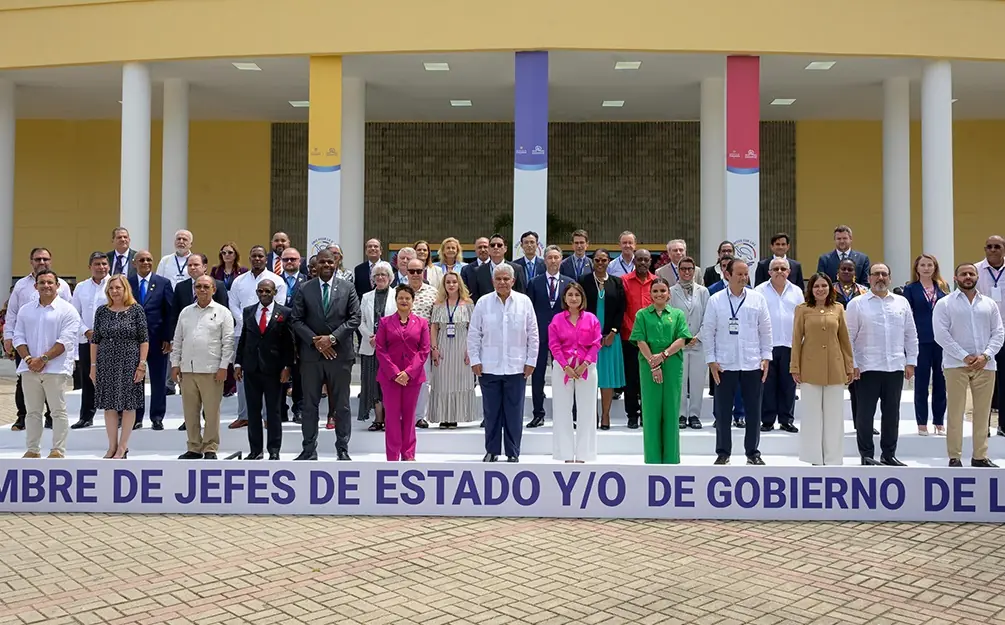The 10th Summit of Heads of State and/or Government of the Association of Caribbean States (ACS) concluded today in Montería, Colombia, with the unanimous approval of the Declaration of Montería —a strategic roadmap that positions the Greater Caribbean for a new phase of development that is more integrated, sustainable, and people-centered.
During the plenary session, Colombia officially handed over the Pro Tempore Presidency of the ACS to Panama, reaffirming its commitment to diplomacy focused on life, climate justice, and strengthened regional cooperation. This symbolic transfer consolidates the continuity of collective leadership and political commitment to a shared vision for the Caribbean’s future.
Under the theme “United for Life: Toward a More Sustainable Greater Caribbean,” this historic Summit reaffirmed a collective commitment to a common vision in which regional cooperation and multilateralism are strengthened as key tools to respond to global challenges.
At the heart of the debate were urgent and strategic issues for the region: climate justice, inclusive digital transformation, protection of the Caribbean Sea, and the expansion of a sustainable blue economy as fundamental pillars for equitable, comprehensive, and inclusive development. The Declaration also reaffirms that economic integration, regional connectivity, fair trade, sustainable tourism, and the mobilization of inclusive investments are essential drivers for building shared well-being in the Greater Caribbean.
As a region highly dependent on its oceanic resources, the Member States reaffirmed the importance of vigorously promoting the blue economy while safeguarding marine ecosystems, which are essential to tackling climate change. The commitment to designate the Caribbean Sea as a Special Area in the Context of Sustainable Development was reiterated, emphasizing that advancing the blue economy is crucial both for climate resilience and the long-term economic well-being of Caribbean communities.
The Declaration reaffirms the States’ commitment to sustainable development through the five pillars of the ACS: protection of the Caribbean Sea, disaster risk reduction, trade facilitation, sustainable tourism, and air, maritime, and digital connectivity. These pillars are the operational foundation of the new Strategic Vision 2025–2035, which will guide regional action in the coming years.
The need to strengthen regional systems that promote trade and transport was also reaffirmed, with a focus on more integrated and resilient economic relationships. Support was emphasized for an open, fair, and rules-based multilateral trading system.
In addition, the importance of diversifying energy sources and finding affordable solutions was stressed, along with the promotion of a transition to renewable resources and the improvement of regional energy infrastructure.
Leaders also reaffirmed their commitment to promoting regular pathways that ensure safe, orderly, and human rights-based migration, regardless of migration status. Regarding youth, the Declaration urged national policies to align with the 2030 Agenda, ensuring effective participation, especially for those facing vulnerable conditions.
In line with global technological progress, the Member States expressed their strong commitment to protecting decent work and addressing the challenges associated with the technological transformation of the workforce, promoting just transitions within the digital economy and effective labor protection strategies to ensure equal opportunities in a rapidly changing context.
The States also reaffirmed their commitment to promoting equality, equity, and inclusion for all communities in the Greater Caribbean, with special attention to marginalized and excluded populations as key pillars for sustainable development and social cohesion, as well as drivers of economic and social progress.
It was agreed to strengthen international cooperation as a key tool to mobilize resources, align strategic priorities, and build multi-level partnerships. The Summit issued a clear call to observer countries, multilateral banks, and international partners to increase their support for ACS flagship projects.
“The current circumstances compel us to come closer together, working in unity to achieve the dream of a strong, developed, peaceful Caribbean region with opportunities for all who proudly belong to it,” —stated the President of Panama, José Raúl Mulino.
“The Greater Caribbean has the potential to become a true regional cluster for renewable energy, logistics competitiveness, and sustainable tourism. We are not talking about promises, but about real projects already underway. We are decarbonizing our economies and transforming the global energy matrix. We are building the future with action and purpose,” —said Colombia’s Foreign Minister, Laura Sarabia.
“The Declaration of Montería is a forward-looking pact. We are closing the Greater Caribbean Week with a clear roadmap and with Panama assuming the ACS Presidency. Our commitment is to continue working to ensure that the Greater Caribbean is a relevant, united, and heard region on the global stage,” —affirmed ACS Secretary General, Noemí Espinoza Madrid.
Thirty years after the founding of the ACS, this Summit marks a turning point to revitalize regional cooperation, solidify transformative agreements, and strengthen the Greater Caribbean’s leadership as an integrated, strategic, peaceful, and self-voicing region, capable of offering concrete solutions to the challenges of the 21st century.
With the approval of the Declaration of Montería, the ACS renews its transformative purpose and political will to lead with unity and vision from the Global South. The Greater Caribbean moves forward—united—toward a just, sustainable, and people-centered development model.




